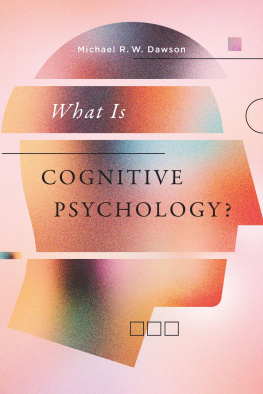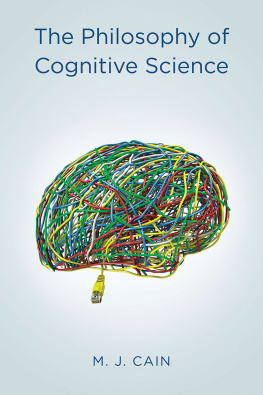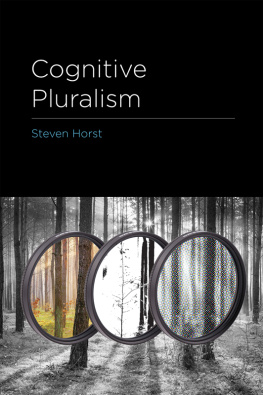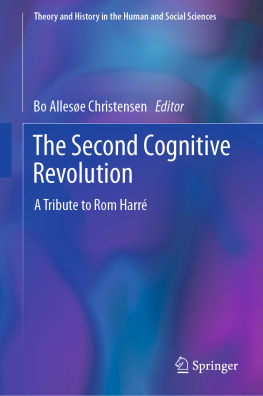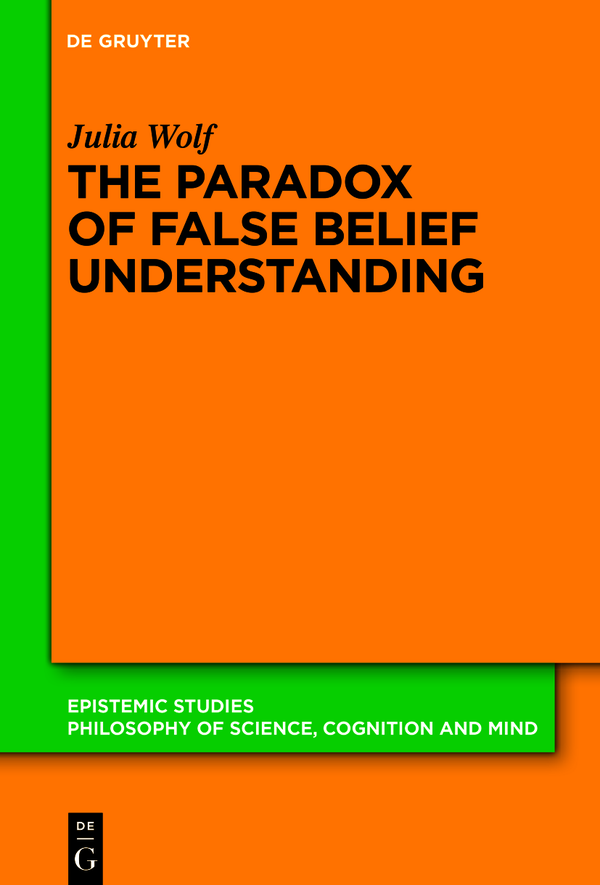Epistemic Studies
Philosophy of Science, Cognition and Mind
Edited by
Michael Esfeld
Katalin Balog
Vera Hoffmann-Kolss
Max Kistler
Beate Krickel
Anna Marmodoro
Alyssa Ney
Hans Rott
Wolfgang Spohn
Gottfried Vosgerau
Stephan Hartmann
Claus Beisbart
Albert Newen
Craig Callender
Tim Crane
Katja Crone
Ophelia Deroy
Mauro Dorato
Alison Fernandes
Jens Harbecke
Volume
ISBN 9783110758320
e-ISBN (PDF) 9783110758610
e-ISBN (EPUB) 9783110758658
Bibliographic information published by the Deutsche Nationalbibliothek
The Deutsche Nationalbibliothek lists this publication in the Deutsche Nationalbibliografie; detailed bibliographic data are available on the Internet at http://dnb.dnb.de.
2021 Walter de Gruyter GmbH, Berlin/Boston
For my parents
List of Figures and Tables
Figure 1.1. | The relation of social cognition, mindreading and the FBT 12 |
Figure 1.2. | Objections to the relevance of the FBT as a test of social cognition 14 |
Table 3.1. | Systematic overview of the main accounts of the paradox of false belief understanding 53 |
Figure 4.1. | Mental file of the pen containing information and a label, anchored in the real-world object 70 |
Figure 4.2. | Two co-referential mental files anchored in one object 72 |
Figure 4.3. | Co-referential vicarious and regular mental file 74 |
Figure 4.4. | Unlinked mental files in the FBT 75 |
Figure 4.5. | Linked mental files in the FBT 75 |
Figure 4.6. | The interrelation between cognitive and situational factors for performance in the FBT 85 |
Figure 4.7. | Uni-directional linking from vicarious to regular mental file. 88 |
Table 5.1. | Different levels of perspective taking 105 |
Figure 5.1. | Experimental setup in a perspective taking task 107 |
Figure 5.2. | Level-2 perspective taking 107 |
Figure 5.3. | Level-2 perspective contrasting 108 |
Figure 5.4. | Level-1 perspective taking 108 |
Figure 5.5. | Joint Attention 108 |
Figure 6.1. | Regular mental file of the block. 123 |
Figure 6.2. | Regular mental file for the block and the pretend mental file of the car anchored in the same object 123 |
Figure 6.3. | Property substitution pretence 124 |
List of Acronyms
FBT
False Belief Task
IT
Interaction Theory
ST
Simulation Theory
ToM
Theory of Mind
TT
Theory Theory
Introduction
Humans are social creatures. We live in groups and are constantly interacting with other people. As such, social cognition our ability to understand and interact with others is a fundamental part of our everyday life. What makes this topic especially interesting is that the way in which we understand or interact with other people seems different to the way in which we think about and interact with objects. For example, we understand others not just as moving objects, which obey certain physical rules, but also as people with mental states, which guide their actions. So, for example, when I see my friend going to the fridge, I do not interpret this merely in terms of some physical laws and regularities (although these may be an underlying cause), but in terms of his desire for a snack. Similarly, I think of myself in terms of mental states too. For example, when I get up and go to the living room, I interpret this in terms of my desire to get my book and the belief that my book is in the living room.
The questions of how we achieve such an understanding of others, what this involves and when it develops are questions, which have long since exercised philosophers and psychologists, leading to some highly fruitful interdisciplinary research. Central to this has been work in developmental psychology looking at the development of social cognition in children. The reason for this is that looking at how children develop an understanding of others, might in turn tell us something about what this activity actually consists in. For example, one of the big questions prompting my research on this topic was the philosophical question of how it is even possible to come to an understanding of other people in terms of mental states (see , for discussion of this problem). Looking at how this understanding actually develops in children, what influences this development and where things go wrong might help in answering at least some parts of this question.
The development of social cognition is a vast research area. My focus here will be on a specific but important component of this: namely the development of childrens ability to attribute beliefs to others and understand their behaviour in terms of these beliefs. This is considered an important part of our everyday social cognition and often referred to as mindreading or Theory of Mind (ToM) in the literature. ).
In recent years, however, this interpretation has been called into question by new implicit versions of the FBT. Contrary to the classic explicit versions of the FBT, which directly ask children to predict someones belief, or to predict their behaviour based on this belief, implicit FBTs are usually indirect and non-verbal tests of childrens belief understanding. Infants at 15 months and younger have been shown to master some of these tasks (). This leads to the so-called paradox of false belief understanding, which has led to an ongoing debate in the literature concerning the development of childrens belief understanding:
These findings give rise to a very interesting and widely debated developmental paradox: if young infants already understand false belief, as the [implicit] spontaneous-response FBT suggests, then why do they fail the [explicit] elicited-response FBT? (
In other words, if the implicit FBT provides evidence of belief understanding as it has sometimes been claimed to do why do children still consistently fail a very similar task pertaining to test the same ability. It should be noted that calling this the paradox of false belief understanding does have to mean that this is something specific to false belief understanding as opposed to belief understanding in general. The reason why I refer to the paradox of false belief understanding is that belief understanding in this context is tested by the ability to attribute false beliefs.
My central aim in this book is to develop the Situational Mental File Account to provide an explanation of this developmental paradox and in doing so provide an outline of the development of childrens belief understanding up to age four.
The Paradox of False Belief Understanding
When considering this paradox, one question which has been and continues to be hotly debated within the literature, is the nature of the development underlying the paradox of false belief understanding. Is it a development of belief understanding, with children either gaining a first understanding of belief or reaching a new level of belief understanding? Or is it something else that develops? Does the implicit FBT really show belief understanding or not?


